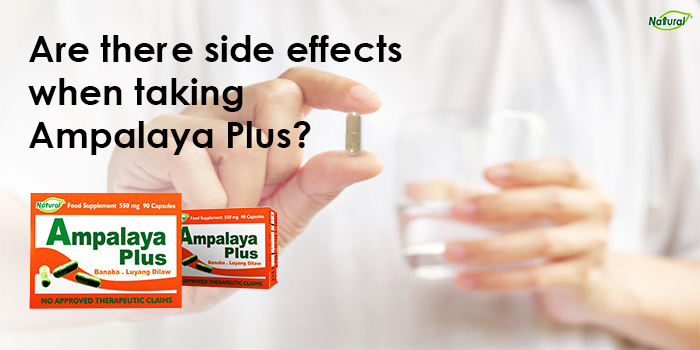The short answer to this is a resounding NO.
Ampalaya Plus, a name almost synonymous with herbal supplement for diabetes in the Philippines, comes with the following certifications:
- Food and Drug Administration (FDA)
- ISO Certification
- Halal Certification
- Good Manufacturing Practice
The certifications aside, Ampalaya Plus is perfectly safe to take if you follow the recommended dosage (take 1 capsule 10 minutes before every meal). This herbal supplement for diabetes helps the body normalize its blood sugar levels with the help of the plant insulin exclusively found in bitter gourds.
However safe Ampalaya Plus is, it is still recommended that you consult with your doctor before taking it alongside your medication.
Herbal Supplement for Diabetes
You probably have seen hundreds of supplements online, all promising things and cures to sicknesses and complications. They can be seen on different websites as well, from a few well-known to hundreds of shady looking ones. The claims of some of these supplements are truly fantastical and should be taken with a lot of salt, or caution. Or both.
When it comes to the validity of claims and the certifications that come with quality products, Ampalaya Plus is on an entirely different level. This herbal dietary supplement for diabetics and prediabetics contain three essential ingredients: the superfood bitter gourd, the wonder herb Lagerstroemia Speciosa, and the fab spic Turmeric.
Ampalaya is responsible for its anti-diabetic properties, among its many other health benefits. Lagerstroemia Speciosa, on the other hand, can help the body lower its cholesterol level and blood pressure. The spice Turmeric is bursting with antioxidants that fight free radicals, thereby preventing premature aging and decreased mental function.




Thanks for the pictures and information on Momordica. In the Kerala region of South-West India, bitter gourd is a highly-regarded vegetable, thought to strengthen the immune system besides providing vitamins and trace minerals required for humans. It is consumed fresh/green and never as the ripe fruit. There are no reports of the rind (nor seeds) being poisonous. As this is a commonplace vegetable here, found in every shop, I wonder if this information is really true. It”s possible that what we use is a slightly different cultivar (Momordica charantia).